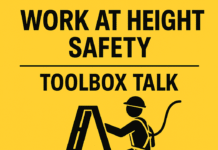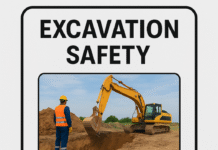
3×3 Risk Assessment Matrix PPT | Free Download PPT
What is a Risk Assessment Matrix?
A risk assessment matrix is a visual tool used in safety, project management, and operations to evaluate and prioritize risks based on their likelihood and severity. It helps teams and individuals make informed decisions on how to handle different types of risks.
Why Use a 3×3 Matrix Format?
The 3×3 risk matrix is the most simplified version of this tool, perfect for teams looking for quick assessments without diving into complex scoring systems. It uses three levels for both probability and impact, making it ideal for small businesses, workshops, and straightforward risk analysis.
Understanding the Axes
Likelihood (Probability)
This axis shows how likely a risk is to occur. The typical levels are:
- Low: Rare or unlikely
- Medium: Could happen
- High: Likely to happen
Severity (Impact)
This axis determines how serious the consequences are:
- Low: Minor issues or no real harm
- Medium: Some disruption or injury
- High: Major damage, injuries, or significant delays
How the 3×3 Grid Works
The grid combines the likelihood and severity scores to assign a risk level:
| Low Impact | Medium Impact | High Impact | |
|---|---|---|---|
| High Prob | Medium | High | High |
| Med Prob | Low | Medium | High |
| Low Prob | Low | Low | Medium |
Each intersection guides how urgent or serious the risk is.
Risk Categories (Low, Medium, High)
- Low Risk (Green): Monitor only
- Medium Risk (Yellow): Manage with caution
- High Risk (Red): Immediate action required
Benefits of a 3×3 Risk Matrix
Simplicity in Decision-Making
It breaks down risks into simple visuals, making it easy for anyone to understand the urgency of each situation.
Quick Visual Representation
The color-coded matrix provides instant awareness, even to stakeholders unfamiliar with technical jargon.
Great for Small to Mid-Sized Projects
Not every project needs a 5×5 or 6×6 matrix. For many situations, a 3×3 is more than enough.
When to Use a 3×3 Risk Matrix
Ideal Scenarios
- Safety assessments
- Construction toolbox talks
- Quick project evaluations
- Risk training sessions
Limitations
- Not suitable for highly complex risk environments
- Lacks granularity for enterprise-level systems
Step-by-Step Guide to Creating a 3×3 Risk Assessment Matrix
Step 1: Identify Hazards
List every possible hazard in your environment or process.
Step 2: Determine the Likelihood
Ask: How often could this happen? Use past data or expert opinions.
Step 3: Determine the Severity
Ask: What’s the worst that can happen? Focus on consequences.
Step 4: Plot the Risk on the Matrix
Match severity and likelihood to find the risk level.
Step 5: Define Actions Based on Risk Level
- Low Risk: Acceptable
- Medium Risk: Mitigate if possible
- High Risk: Eliminate or heavily control
How to Use the 3×3 Risk Matrix in PowerPoint (PPT)
Customizing the Matrix
You can easily insert a table, use SmartArt, or even draw the grid manually in PPT.
Adding Risk Scenarios
Label each box with examples to make it more realistic and relatable.
Using Icons and Colors for Impact
Use icons like warning signs, green ticks, and red crosses to grab attention.
Download Free 3×3 Risk Assessment Matrix PPT
What’s Included in the PPT
- Editable 3×3 grid
- Color-coded sections
- Placeholder examples
- Customizable fonts and layouts
How to Customize It for Your Needs
- Add company logo
- Insert project-specific hazards
- Use animation to reveal layers gradually
Direct Download Link
Best Practices for Presenting the Matrix in Meetings
Engaging Your Audience
Use real stories and relatable examples to connect emotionally with your team.
Simplifying Technical Language
Say “this is likely to happen and will hurt us badly” instead of “high probability, high impact.”
Telling a Story with Your Risk Matrix
Build a risk journey – show where you started, current standing, and future mitigation steps.
Case Study: Using 3×3 Matrix in Real Projects
Construction Project
On-site hazards like falling tools or scaffolding collapse were mapped using a 3×3 matrix. It helped prioritize safety drills and PPE distribution.
Office Health and Safety Assessment
Tripping over cables or poor ergonomics – all visualized and solved quicker thanks to the simple 3×3 format.
Common Mistakes to Avoid
Misjudging Severity or Likelihood
Being too optimistic or too paranoid leads to skewed results. Use data!
Ignoring Low Risks That Accumulate
Multiple low risks over time can compound into major problems.
Overcomplicating the Presentation
This defeats the whole purpose of the 3×3 matrix: simplicity.
Tools and Templates to Enhance Your Matrix
Online Tools
Platforms like Lucidchart, Canva, and SmartDraw offer plug-and-play risk matrices.
Excel Integration
Excel can automate scoring systems if you want to evolve beyond PowerPoint.
Printable Versions
Great for workshops or safety boards, especially on-site where digital access is limited.
Advantages of Using Pre-Made PPT Templates
Saves Time and Effort
Why build from scratch when you can download and edit instantly?
Professional Look Instantly
Templates often come with clean designs and animations.
Easily Shareable with Teams
Send it via email or present in Zoom meetings. No extra software needed.
Conclusion
The 3×3 Risk Assessment Matrix is the go-to tool when you need a quick, clear, and efficient way to assess risks. Whether you’re a safety officer, a team leader, or just trying to manage everyday risks better, this format is your best friend. And with our free PowerPoint template, you’re only a click away from making smarter, safer decisions.
Role of a Safety Officer in Emergency Situations | Download PDF
OSHA Safety Officer: Free Download 55 Duties of an OSHA Safety Officer
Work at Height Risk Assessment Chart | Free Download
40 Aramco Safety Engineer Interview Questions and Sample Answers | Free Download PDF
43 ADNOC HSE Officer Interview Questions and Answers | Free Download PDF
FAQs
1. What industries use the 3×3 risk matrix most often?
Construction, manufacturing, education, and healthcare commonly use it for quick risk assessments.
2. Can I expand the matrix to a 4×4 or 5×5 later?
Yes! You can start with a 3×3 and scale up as your needs become more complex.
3. Is the 3×3 matrix suitable for software risk assessments?
It can be, especially during early-stage planning or MVP launches.
4. How do I train my team to use this matrix?
Conduct a short workshop, explain each level, and walk through examples.
5. Can I use the matrix for personal risk planning?
Absolutely! It’s great for travel risks, home safety, or financial decisions.
























